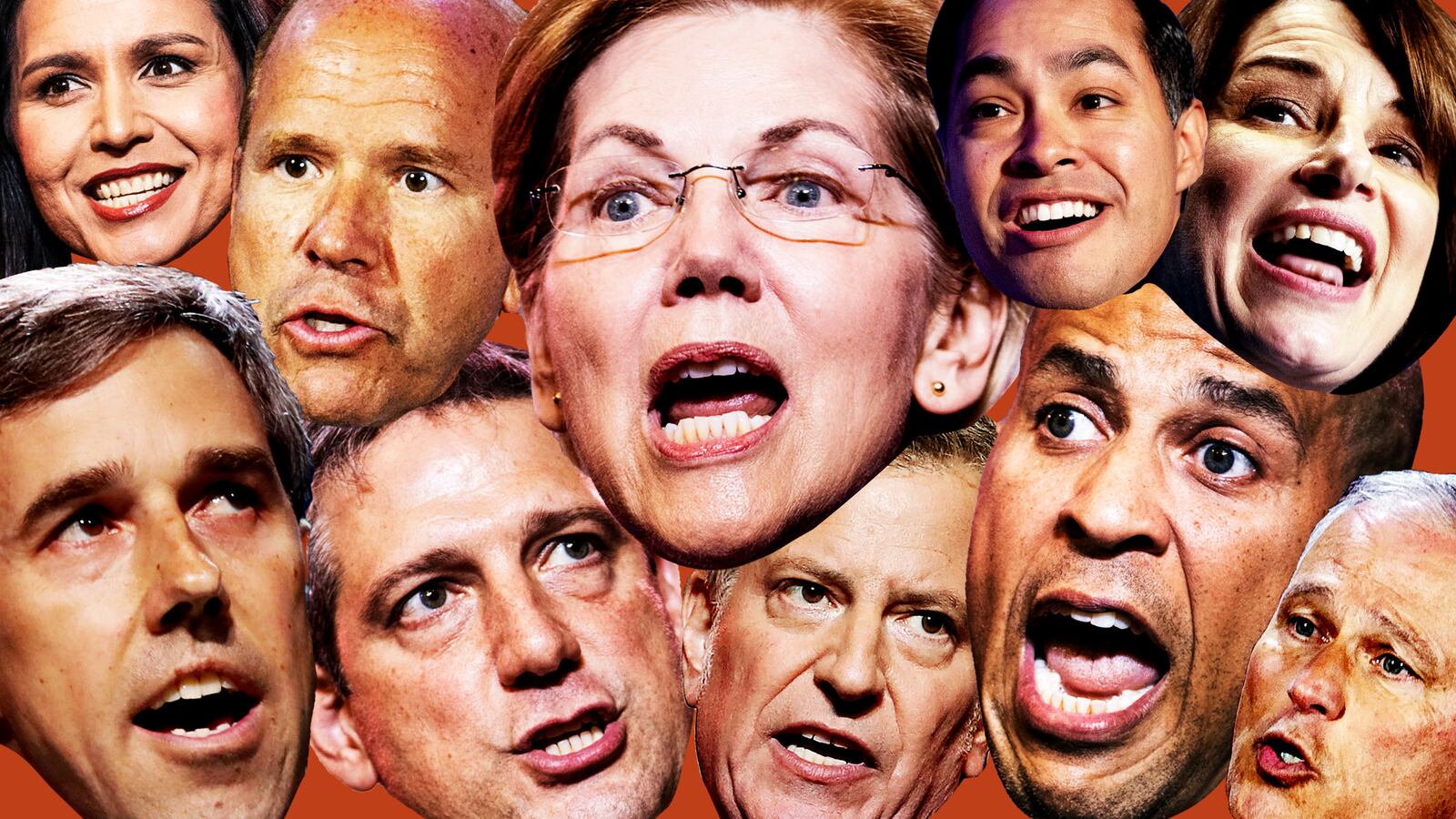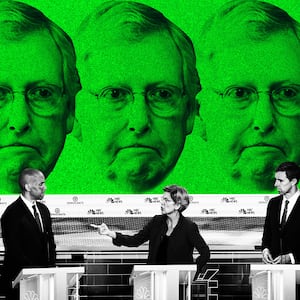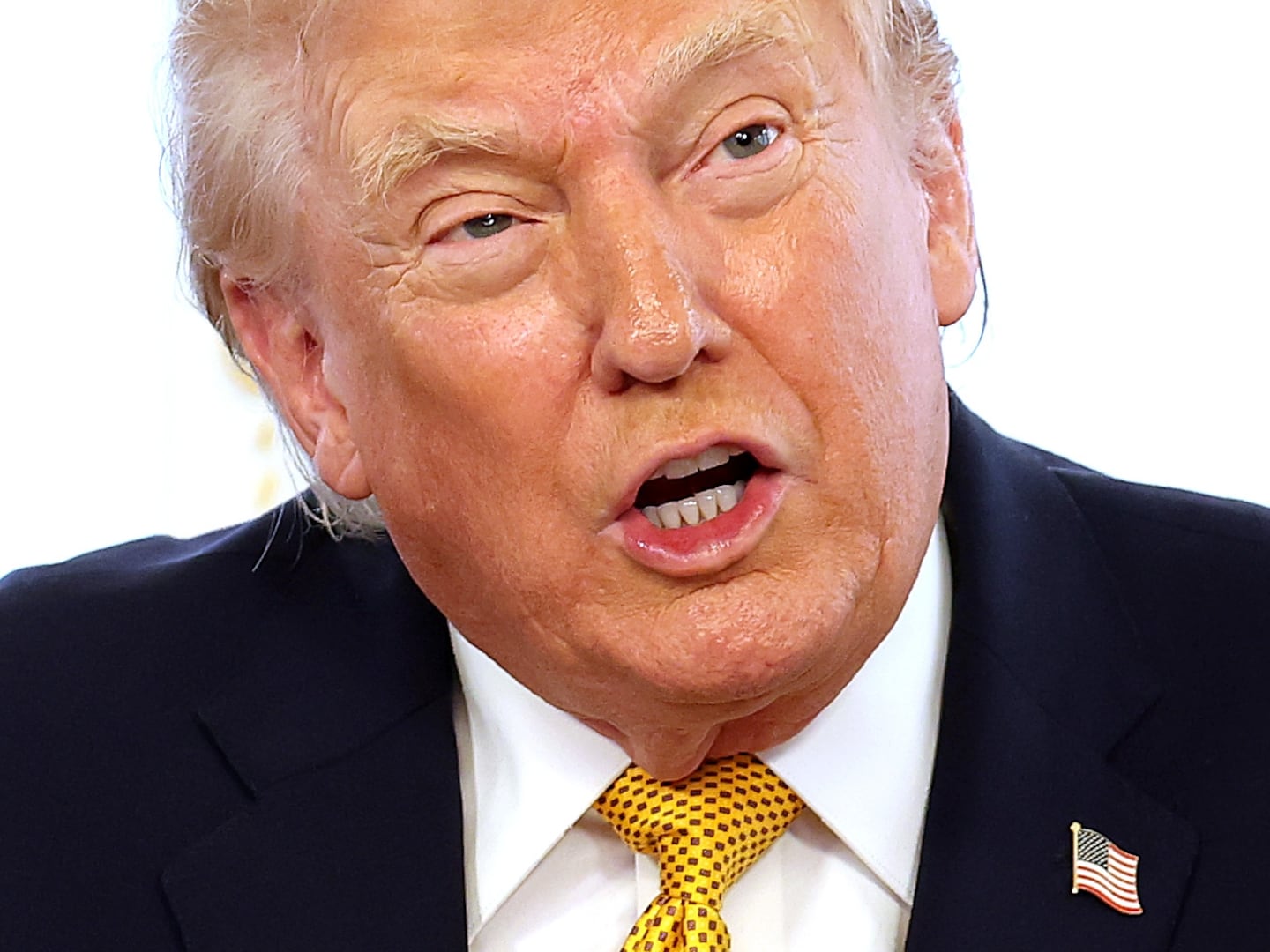MIAMI—No stage time? No problem. In the spin room, even the opinion-poll one-percenters got a glimpse of double-digit fame.
It didn’t take long. Before all 10 presidential candidates closed out the first Democratic primary debate, the arena had morphed into an alternate universe where popularity no longer mattered. Here, name-recognition wasn’t really a thing. And the idea of a frontrunner was merely a fairy tale. In the first spin room of the 2020 cycle, presumptive also-rans were unleashed into an open area filled with reporters angling for live hits.
“Oh, here comes de Blasio!” one reporter said enthusiastically, searching for a gap between the hordes of journalists glued to the New York City mayor. “De Blasio’s been packed,” another said.
Nearly 1,300 miles from Manhattan, the low poll numbers that loom over de Blasio’s campaign didn’t matter. It wasn’t important that several on-stage jabs didn’t land. For a few hours in South Florida, de Blasio, master of no reporter, reigned supreme in the spin room, attracting some of the largest and most persistent groups of journalists all night.
Before prime-time, the large, multi-tiered room inside the Adrienne Arsht Center for the Performing Arts looked like a scene after a tame night out: Half-finished and empty plastic bottles of Coke and Diet Coke were flung near a tipped over box of Whoppers, the chocolate malt candy. An isolated staffer, seated on one of several wavy, white pleather couches, rested his feet on top of a square block of polished wood used as a coffee table.
Those who came before the debate generally stayed close to a stable of campaign staffers and public-relations professionals. Two young male campaign officials stood like statues, politely delivering bland answers to questions about what to expect from their candidates, without test-running their spin. Others chatted freely, spitballing ideas about who would throw the first punch.
But the pre-spin simmer didn’t last long.
As the post-debate events roared into action, the hot air—thick like stew outside the arena—found its way inside.
“She’s getting mobbed right now and that tells you how well she did,” an adviser to Sen. Amy Klobuchar (D-MN) told The Daily Beast. “It’s like flies to a light. If you shine bright, you get a lot of people around you.”
Since launching her campaign in February, Klobuchar has struggled to have a breakout moment. But in the spin room, it was her straightforward delivery, the adviser said, that made her pop. And adding a zinger didn’t hurt—she said President Trump’s approach to health-care policy was “all foam and no beer.”
While the majority of the spin started before candidates finished their closing remarks, one Klobuchar ally was getting a particularly early start, making calls to reporters prior to her performance and texting throughout the night to ram home points of emphasis.
But the Minnesota senator’s team wasn’t the only one. Following the main event, reporters’ inboxes were flooded with a steady influx of press releases. While some campaign staffers chose not to text with reporters in real-time, others welcomed the back and forth, taking moments away from watching the monitors to give unfiltered feedback to The Daily Beast about their rivals’ perceived weaknesses, or to talk up their own candidate’s successes.
Former Rep. Beto O’Rourke, who dove into Spanish seconds after he started talking, enjoyed a level of media attention that more closely mirrored the hype from his 2018 Texas Senate bid than his foray into presidential politics. O’Rourke, who has seen his press coverage nosedive in recent weeks, was never visible without an army of credentialed press shoving cameras and cellphones in his face. Toward the end of one particular spin session, a man used himself as an impromptu shield urging people to back off.
Another candidate with lower name-recognition, Rep. Tulsi Gabbard, didn’t have a breakout moment Wednesday. But that didn’t stop throngs of reporters from tracking the 38-year-old Hawaii congresswoman’s movements off-stage. Inching closer to Gabbard, a reporter from the right-wing website Breitbart News wanted a live interview. A foot away from her boss, a communications aide, who was ready to give reporters who inquired her contact information, said she’d look into it.
Over the past several months, other candidates, including Julián Castro, the former Housing and Urban Development secretary, have struggled to gain traction. Speaking candidly in a room designed specifically for bending the truth, a former Castro staffer offered a rare moment of honesty. When asked about the one thing he would want to spin to reporters, Jaime Castrillo said, “Just for people to focus on him,” acknowledging that they’ve struggled with it so far. “Just to pay attention.”
An aide close to Sen. Cory Booker saw it a bit differently: “The surrogates get to talk a little bit, but as soon as the candidate comes in it becomes a mob scene,” said Jim Demeres, who’s working with Booker from New Hampshire.
Sen. Elizabeth Warren, who started off with an impassioned case for her candidacy before fading into the background, was again thrust into the spotlight hours after the debate ended. Dozens of reporters waited in parallel lines for candidates to enter the spin area, with many glued to their positions in anticipation of Warren’s entrance.
“There’s still five left, she hasn’t come out yet,” one reporter said when asked if the Massachusetts senator had already joined the room.
But as contenders slogged with their staff through crowds, surrogates from campaigns that were not even taking part in the night’s debate also broke out into spontaneous press conferences.
“Who wants to sit at home when you can sit in lovely Miami?” Symone Sanders, a senior adviser to former Vice President Joe Biden, told The Daily Beast when asked why she showed up on a night her boss did not perform. “We wanted to watch the debate.”
Watching along with the TV viewers, Sanders won’t have seen too much for her candidate to worry about.







